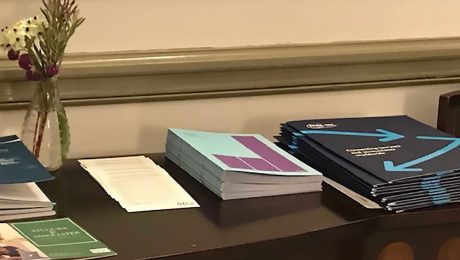Annual Personal Income Tax After Adopted Amendments to The Law on Personal Income Tax
The very beginning of 2023 marked the beginning of the implementation of the Law on Amendments to the Law on Personal Income Tax (“Official Gazette of RS”, No. 138/2022), which was adopted in December of the previous year. (more…)
- Published in Rules & Regulations
Tax Update – January 2021.
As of January 1st, 2021. amends of the Law on Personal Income Tax (“Official Gazette of the RS”, No. 153/2020), Law on Corporate Income Tax (“Official Gazette of the RS”, No. 153/2020), Law on Value Added Tax (“Official Gazette of the RS”, No. 153/2020) come into force. (more…)
- Published in news, Rules & Regulations
Key amends of the Law on Tax Procedure and Tax Administration
On November 26th 2020, the National Assembly of the Republic of Serbia adopted Laws on amendment to the Law on Tax Procedure and Tax Administration and Law on the amendments to the Law on Property Taxes, both published in the “Official Gazette of the RS”, No. 144/2020. (more…)
- Published in Rules & Regulations
New stance of the tax authority regarding outstanding debts of freelancers
The last two decades were marked by growing business opportunities in the IT domain, softer R&D, advertising, graphic design, etc, which were all supported by the development of digital platforms on the Internet. In this environment it spontaneously became common practice for domestic residents to be employed by foreign companies which are not registered in the Republic of Serbia with the Business registers agency. (more…)
- Published in Rules & Regulations
Regulation on delaying deadlines
RS Government adopts regulation on delaying deadlines for holding of company assembly, sending financial statements and submitting tax balance sheets (more…)
- Published in Uncategorized @en
Decree on Program of Financial Support to Business Entities for Maintaining Liquidity
The Government of the Republic of Serbia adopted on April 10, 2020 the Decree on Program of Financial Support to Business Entities for Maintaining Liquidity and Working Capital in Aggravated Economic Conditions due to the COVID – 19 Pandemic Caused by the Virus SARS-CoV-2 (hereinafter: Decree), which was published on the same day in the “Official Gazette of the Republic of Serbia”, No. 54/2020 and came into force on the following day. (more…)
Adopted regulation on Fiscal benefits and Directive benefits to businesses in the private sector and money assistance to citizens to make effective economic consequences of diseases COVID-19
On April 10, the Government of the Republic of Serbia adopted a Regulation whose main objective is to implement previously planned economic measures to mitigate the economic consequences caused by the COVID-19 disease pandemic. The Regulation itself prescribes fiscal benefits and direct benefits for the private sector that can be realized under the conditions prescribed by this Regulation, as well as direct financial assistance in the amount of 100 euros in dinars equivalent to all adult citizens of the Republic of Serbia. (more…)
Economic measures for mitigation of COVID-19 pandemic effects
After a virus, Corvid-19, began to spread throughout the world, many countries have faced changes both at the social and economic levels.
The global economy expects losses in the coming period, with the first visible negative effects in the next three months, when it is expected that countries will use their resources from pandemic suppression. (more…)
Tax Breaks for the IT sector
New Draft of Corporate Profit Tax Law: Tax Breaks for the IT sector
Most of the measures relate to tax incentives for companies that have intellectual property registered in Serbia, as well as companies that are engaged in research and development in Serbia.
The Ministry of Finance has published the Draft Law on Amendments to the Law on Corporate Income Tax. This draft has proposed several new measures and the abolition of existing ones, some of which are relevant to IT companies and startups. (more…)
- Published in news, Rules & Regulations
MSI International Conference in Madrid
Head of Finance departament Sanja Stevanović-Polovina represented ZS TAX & Consulting at MSI International Conference in Madrid
MSI Global Alliance, one of the world’s leading international associations of independent legal and accounting firms with over 260 member firms in more than 100 countries successfully organized International Conference in Madrid as a host and ZS Tax & Consulting in attendance. (more…)
- Published in news

 Serbian
Serbian  English
English 










